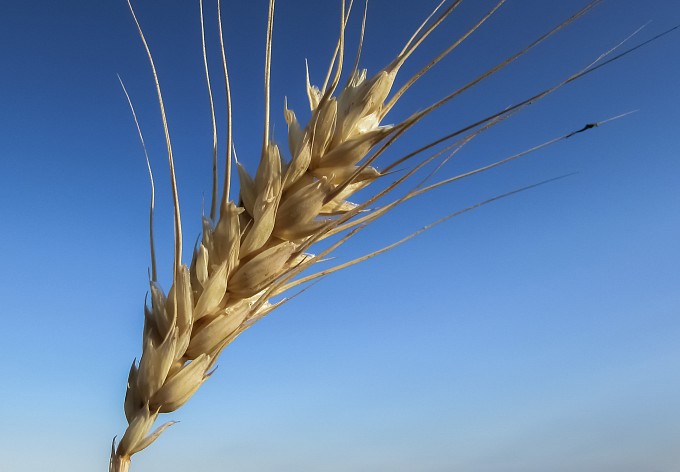
The Taimas wheat variety, recently developed by Kazakhstani scientists, will now be distributed as a priority seed variety. This was announced yesterday in the Government by the head of the Scientific and Production Center for Agriculture named after. A. Baraeva Timur Savin. In terms of its characteristics, Taimas is superior to domestic and foreign analogues, reports APK News agency.
The task of creating new drought-resistant and popular varieties of agricultural crops was set before Kazakh breeding scientists by Deputy Prime Minister of the Republic of Kazakhstan Serik Zhumangarin.
“In the structure of NANOC, research institutes, in their functionality, cover all sectors of agriculture, including crop production and livestock farming. However, in practice, Kazakh farmers often use seeds and technologies from foreign countries,” says the Government press service.
Today, the functions of the Kazakh Research Institute of Agriculture and Plant Growing include the creation of competitive varieties of crops and hybrids using classical methods and achievements of biotechnology and genetic engineering. The institute’s achievements include an 11-fold increase in soybean acreage (over 40 years). The share of KAZNII varieties in the total soybean planting in the southern regions of the country today is more than 70%.
In grain-growing regions, the popularity of wheat varieties bred on the basis of the Research and Production Center for Grain Farming named after A.I. is growing. Baraeva. The center specializes in agriculture, selection and seed production. Spring wheat varieties bred here in 2023 were used:
on 67% of the crop area in Akmola (2,874.6 thousand hectares),
by 23% – in North Kazakhstan region (586.1 thousand hectares),
by 14% – in Karaganda (109.2 thousand hectares)
by 9% – in Kostanay regions (320.8 thousand hectares).
Particularly popular among farmers are such varieties as: “Shortandinskaya 95 st.,” “Astana,” “Akmola 2.”
“One of the best, recently bred wheat varieties, Taimas, is superior in its characteristics to domestic and foreign analogues. It is resistant to drought, heat and disease. Together with the Science Foundation, we won a grant for the commercialization of this variety. “Taymas” was patented last year, and now it will be distributed as priority seed varieties,” noted the head of the Scientific and Production Center for Agriculture named after. A. I. Baraeva Timur Savin.
Kazakh Research Institute of Plant Protection and Quarantine named after. Zh. Zhiembaeva is the only institution in the republic specializing in the field of plant protection and quarantine. The main problem of the institute today is weak control over the quality of seed material. In this regard, it was proposed to create a new control system based on appropriate certification.
The Kazakh Research Institute of Processing and Food Industry has its own collection of successful cases. Thus, on the basis of Bayserke-Agro LLP, Meat Processing and Service and the Aktobe meat cluster, the technology for cutting and deboning cattle carcasses developed at the research institute was introduced, which complies with international standards. The agricultural company "Akzhar Ondiris" in the Pavlodar region successfully uses the technology for the production of a probiotic protein product from goat milk. And in the Zerenda farm in the Akmola region, the production of dairy products for baby food based on goat milk has been established, which is also a development of the institute’s scientists.
“We need deep processing technologies for those types of products for which we are competitive. There are many large industries in the country; this year alone more than a hundred dairy farms will be put into operation. We must sell not raw materials and grain, but finished products and related products, such as packaging. Therefore, it is necessary to develop technologies in accordance with the investment project programs of the Ministry of Agriculture. Plant growing institutes need to prepare proposals focused on growing drought-resistant crops that are in demand in the markets,” Serik Zhumangarin addressed the meeting participants.